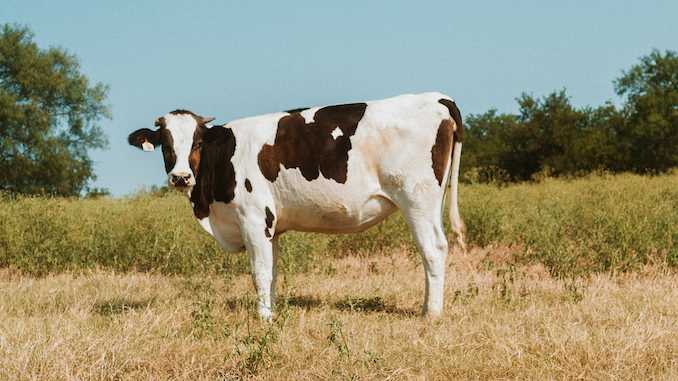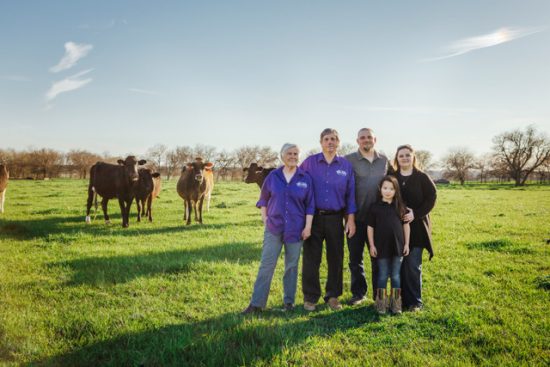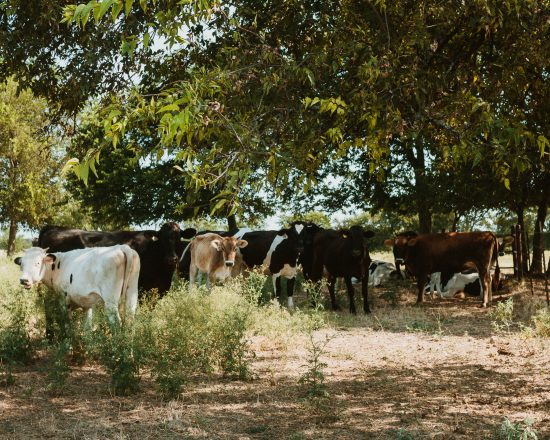
Much of the coffee world may be obsessed with milk alternatives, but Mill-King is a small-town Texas creamery that isn’t slowing down anytime soon.
BY MIRANDA HANEY
SPECIAL TO BARISTA MAGAZINE ONLINE
Cover photo courtesy of Miranda Haney
An army of oats is no match for Texas dairy thanks to Mill-King Creamery. The family-owned farm supplies hundreds of cafés across the state with its unadulterated cow milk, and despite an apocalyptic freeze, a pandemic, and the turbulent agriculture industry, business is booming.
Mill-King is the real deal: low-temperature pasteurized, non-homogenized, no additives, no hormones, no exceptions whole milk. Regardless of dietary restrictions (or trends), no one can argue the pure bliss of pairing it with good espresso. It’s naturally sweet and a go-to for Katie Well, district manager for Merit Coffee in San Antonio.
“It’s just so rich and almost buttery,” says Katie. “When I have our coffee with other milk it’s just not the same.”
Recently, I got to tour the facility and check out the magic that happens behind making dairy with Mill-King Creamery.
Entering the Palace
Pulling into the gravel lot off a farm road in McGregor, Texas, it’s hard to imagine this is where the magic happens. Craig Miller greets us with an enthusiastic handshake inside the humble shipping-container-turned-farm store. He’s the head honcho at Mill-King, a third-generation dairy farmer and embryologist by trade. He invites us into his SUV to take the grand tour.
As we mosey down dirt roads searching for napping heffers (after the morning graze, you’ll usually find them enjoying the shade of a tree), Craig tells us the Mill-King story.

The Mill-King Story
His grandparents, Arnold and Minnie Miller, started dairying in 1941. Over the next 50+ years, the family went from selling milk off the farm for five cents a gallon to growing a herd of over 600 head of cattle and contributing to one of the country’s largest dairy cooperatives.
The switch from conventional processing to today’s methods came in 2010. After the market collapsed in 2009, many of the country’s dairies were going out of business. The Millers were not immune to the financial stress. At the same time, Craig’s wife Rihanna was testing her dairy allergy by drinking raw milk. To everyone’s surprise she had no trouble digesting it, and the family saw a golden opportunity to pivot.
Keeping It Simple
Since then, the Millers have been steadily growing a profitable business in a notoriously unprofitable industry. Their secret? Keep it simple, Craig says. All of their feed is locally grown and their minimal processing methods are done right there on the farm. Instead of hundreds of workers crammed into a facility, Mill-King employs just shy of 10 people, most of whom are family members that live on-site.
It was this lean business model that helped propel the creamery forward in the midst of 2020. As big dairies and alternative milk companies struggled with complex supply chains, massive processing plants, and other pandemic-related hardships, Mill-King never once missed a beat.
“For me, milk is an obvious winner,” says Craig, getting out of the car to unlatch an iron gate. He drives us into a field of high grass, stopping a few yards away from a diverse group of cows.
Cows at Mill-King
Around 80 cows live on the farm, half of which are milked twice a day, while the other half rest or take a mandatory maternity leave. With the help of other farmers in the area, about 700 head of cattle contribute to Mill-King. The milk is a blend from clever brown Swiss, absent-minded Holstein, and cantankerous Jersey breeds.
“The hardest I’ve ever been kicked in the head was by a Jersey,” says Craig. The herd starts to trust us and moves closer, but he realizes they’re headed for the open gate. We get back in the car, close the gate behind us, and head back to the farm store.

Mill-King Is a Family Experience
Each member of the Miller family plays a significant role in getting the milk from the cow to the café. Craig’s dad has almost half a decade of dairying experience. His mom is the engineer, with his wife and cousin-in-law taking care of the business side of things.
“It’s not like we’re geniuses or nothin’,” Craig says. “We’re just fortunate enough to be working together.”
ABOUT THE AUTHOR
Miranda Haney (she/her) is a coffee educator, freelance writer, and musician based in Austin, Texas. She’s currently working as the head trainer and events coordinator for Greater Goods Coffee. Miranda was a contestant on The Barista League: Online Season 2 and a competitor at the 2019 USBC Nationals in Costa Mesa, Calif. When she’s not doing coffee things, she’s probably running a marathon (or something crazy like that).

